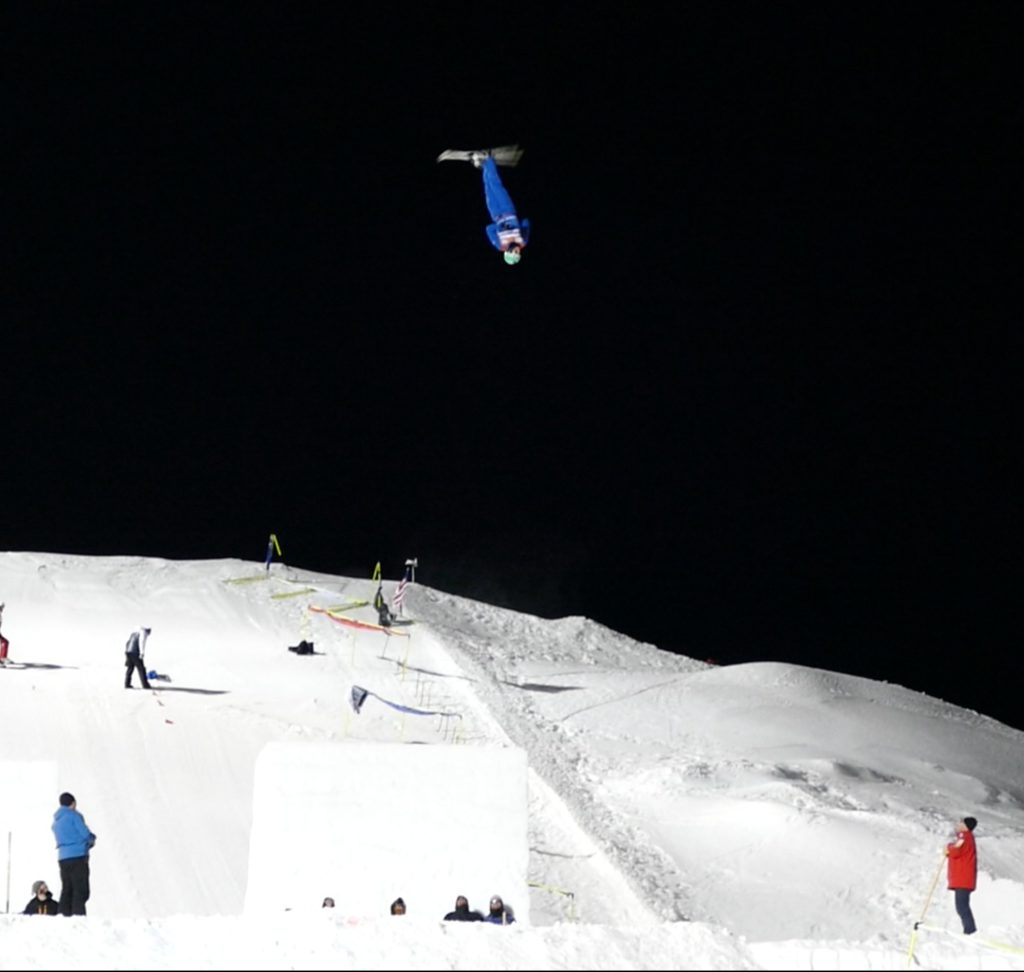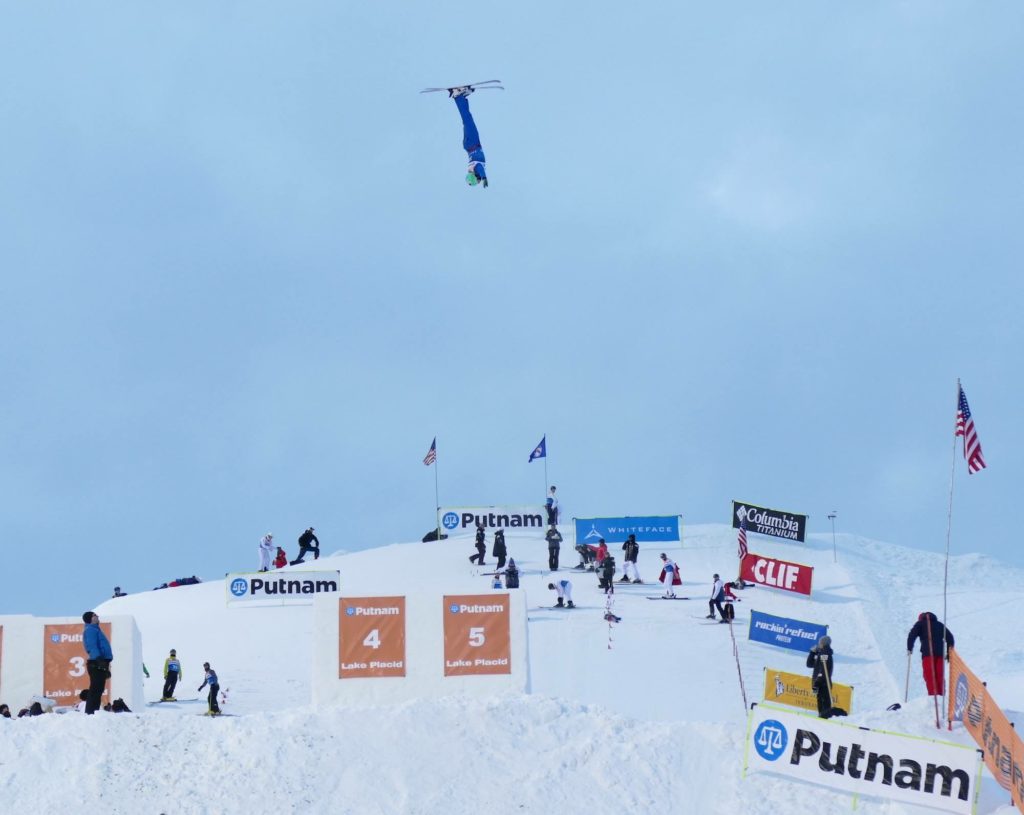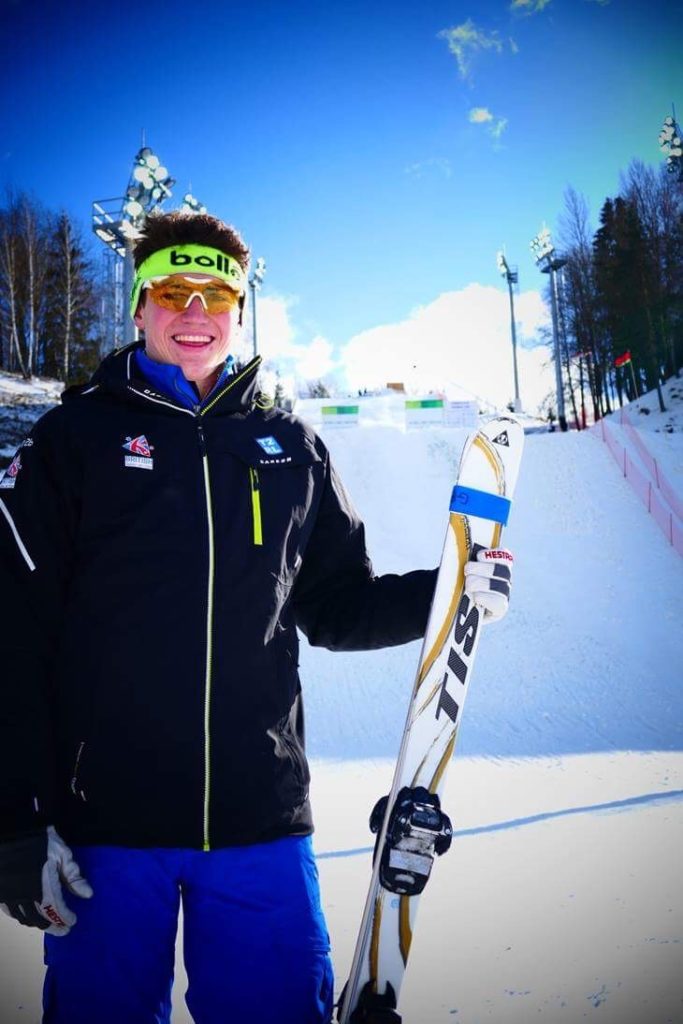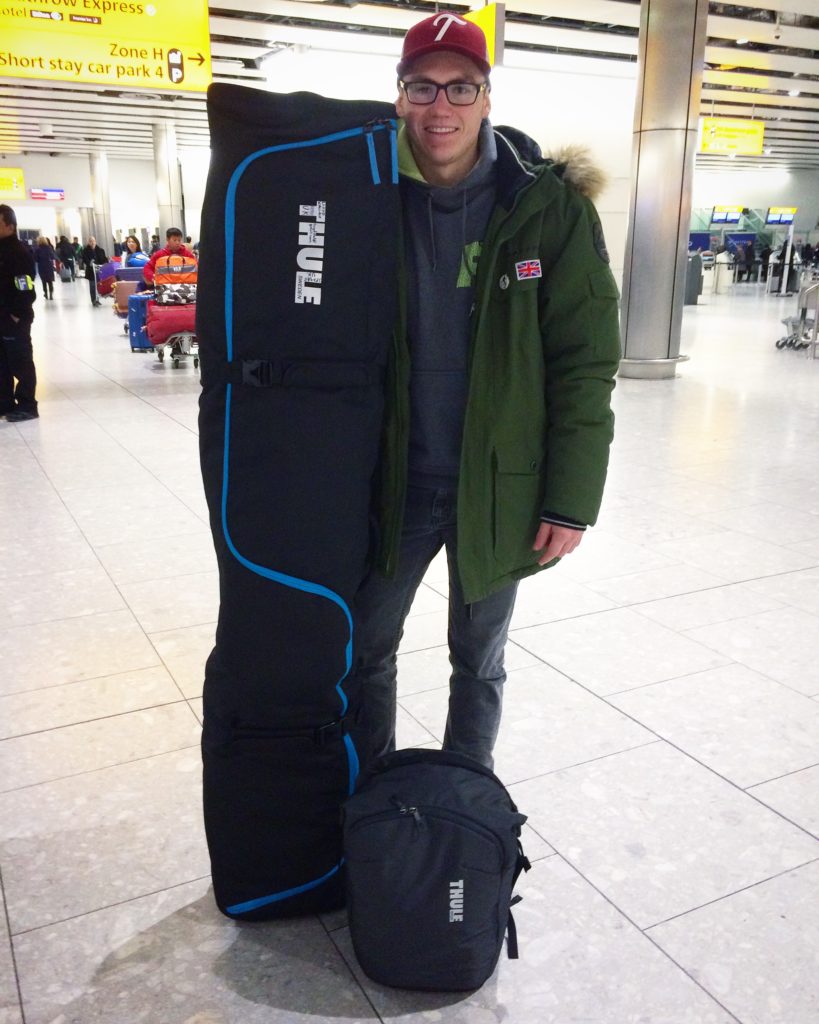 If somewhere in Lloyd Wallace’s fledgling years a door was opened, it’s one he’s had his shoulder to ever since.
If somewhere in Lloyd Wallace’s fledgling years a door was opened, it’s one he’s had his shoulder to ever since.
It’s true that some sports are vocations not available in equal measure to the masses, only truly accessible to the privileged few. You could say the same of skiing (although in years gone by I can recall driving to the Alps because I couldn’t manage a beach holiday, financially). You could also say that Lloyd was lucky to spend two years as a child waking to sunlight glinting on snow. But take a look at everything he’s achieved on the slopes – and in the air – since and you see a man only familiar with commitment and iron clad resolve. The kind of dedication to his sport that makes a mockery of those who would point to concepts like luck and chance.
Nonetheless in the very beginning, before the tireless training, one or two stars aligned.
“I have never remembered a time when I haven’t skied,” Lloyd says. “I was lucky enough for my parents to take me on ski holidays from a very young age. When I was 5 and 6 we even lived out in La Clusaz for two seasons, I even went to school out there. Alongside this I competed in gymnastics, to a national standard, until the age of 13. At 13 I decided that I no longer wanted to do gymnastics as I had been training 15-20 hours a week since the age of 7 and I wanted to try out different sports. With the help of my parents, who both represented Team GB at the Olympics in Freestyle Skiing, I decided that I wanted to combine my skiing and my gymnastics and I tried out aerials. I was hooked instantly. We were in the French Alps one summer, in a resort called Tignes, and my parents let me go off the small water ramp – a dry ski slope ramp that aerialists train on in the summer – into the lake. My dad made me try a backflip off the ramp. I landed upside down in the water, came up with a massive smile on my face and immediately went to try it again. I haven’t looked back since.”
Lloyd might not have looked back but if pulling backflips into the water was plain sailing, the real thing would be more testing, and events would transpire that would threaten to send Lloyd’s Olympic aspirations dangerously off piste.
“I think that in any sport where you are made to wear a helmet there are certain risks involved that you have to be willing to take,” Lloyd says when I ask him about the crash in Switzerland last year that saw him put into a coma. “Skiing is a very extreme sport, and can be dangerous. I was very unfortunate and very fortunate at the same time with my accident. I was very unfortunate in the sense that I caught an edge at the time I did and that I hit my head. I was very fortunate that there was no long term injury and no serious brain damage after I hit my head and knocked myself out, that I was looked after correctly and in some of the best hands in the world at Zurich hospital, where they placed me in an induced coma for a day. I was also very fortunate that I don’t remember any of it, the memory is just not there, and that now when I jump there is no memory to remember or to scare me more. I am now able to consider it as another hurdle I’ve had to overcome, granted it was quite a big hurdle. I missed out on a month and a half of quite important training this summer, meaning my progress at the start of this season was pretty slow getting back into it. There have been a series of highs and pretty low lows, but I’ve pushed through them and have got myself back up to the tricks I was performing last season. I’m also lucky that I put myself in a good position regarding qualification for the Olympics last season and that I was able to fulfill all the remaining criteria this season and get selected to go and achieve the dream that I’ve had since I was a kid.”
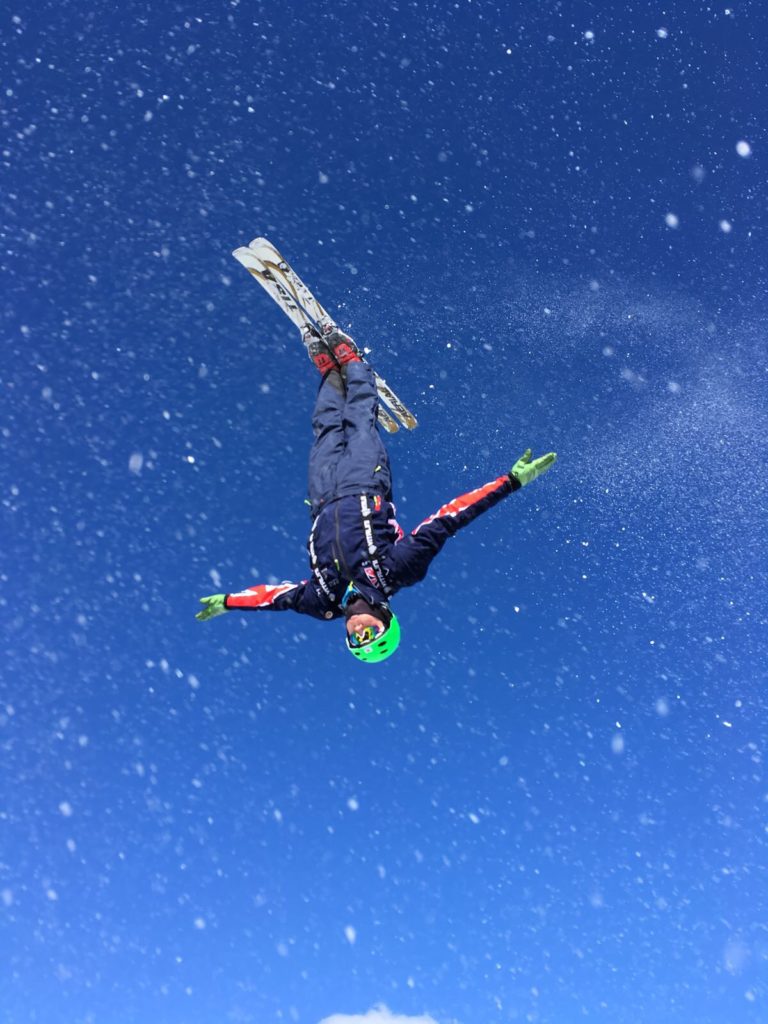
Lloyd might be aware of the associated risks but watching him hit the air head down and skis skyward, he looks like a man able to disconnect danger or else rinse it away in the surge of adrenaline. In any case the rewards have been more than sufficient consolation.
“It’s a massive honour,” Lloyd answers when I ask how it feels to qualify for Pyeongchang. “Not just to be the first GB male Olympic aerialist in 20 years, but to be an Olympian at all. All I’ve ever wanted to do is to represent my country at the highest level of sport, and I can now say that I’m going to do that. It makes all the sacrifices that I’ve had to make, for training over the last 8 years, totally worth it. I get to follow in the footsteps of both my parents (1988, 1992, 1994 Freestyle Skiing), my uncle (1984, 1996 track cycling) and my grandfather (1948 3000m steeplechase) and become an Olympian, which is just surreal to say. In terms of pressure, obviously it will be the biggest competition in front of the biggest crowd I’ve ever competed in, which will no doubt be extremely nerve wracking. Although due to coming back from my injury this summer and being able to compete being a huge win in itself, means that there isn’t much pressure on me, no one is expecting me to win a medal. Which plays right into my hands, having no pressure means I can go enjoy myself, and both me and my coach know that I perform my best when I’m enjoying myself. Aerials is a very high risk sport, with the three finals rounds being knock out, from 12 to 9 to 6. If I can get myself into the finals, which I’m very capable of doing, then who knows. I know that the jumps I’m competing put me alongside some of the best in the world, it’s up to me to prove it.”
And even now, with just days to go, Lloyd is putting himself in the best position to deliver on that potential.
“Well I have just arrived in Japan for a pre-Olympic training camp with the Swiss national team who I travel and train with full time,” he says when I ask him what a typical day holds. “I wake up at around 7am and head to breakfast, yoghurt and granola and some toast. Then we go to warm up and make sure we are prepped and ready to jump. We head out to the jump site where we chop our landing hill and help prep the jumps. We then train for up to 3 hours, I’ll do between 7-10 jumps, depending on the difficulty of the jumps I perform and how my body is holding up. After training I’ll usually mong out on my bed for half an hour scrolling through Instagram, before heading to a mobility and stretching session. Lunch, whatever is on offer really, usually a lot of it. After lunch we’ll have a gym session, could be a core workout or weights, then I’ll head to physio where I let the physio put me back together. Supper, again whatever and a lot of it. Then we might play a bit of cards before we head back to our rooms, where I’ll read until I fall asleep. My record is one sentence before I’ve dozed off.”
If that sounds like your idea of fulfillment, following Lloyd’s path isn’t insurmountable. The more Lloyd tells me, the more I come to realise that perhaps a retraction of the open door analogy is appropriate. Perhaps for every locked door, somewhere lies a key.
“Unfortunately there isn’t an aerial skiing programme in place in the UK, yet. From the very beginning I’ve been on my own fighting for support and sponsors to help me get to the training facilities abroad, and that continues to this day. If you can get to a water ramp anywhere, then go for it, it’s a sensation like nothing else and so addictive. For anyone trying to get into Freestyle Aerials, make sure you learn to ski, which sounds obvious but you’d be surprised. It doesn’t have to be to a high level but the more the better. Although this is an acrobatic sport, being comfortable on skis is a huge benefit.”
As with Sochi gold medallist Julia Dujmovits, Lloyd’s definition of success has the ring of subjectivity to it. That the delivery of your peak performance, irrespective of your opponent, is a victory in itself.
Oh, and don’t forget to look around once in a while.
“I think success is a very subjective thing, each person will have goals that they set for themselves and achieving those will often be most important. In sport, personally, I think that if you can achieve your goals while enjoying yourself and staying healthy, then you’ve succeeded. Success for me at the Winter Olympics in a few weeks will be to jump nicely and to the best of my ability, whilst taking in the incredible, once in a lifetime atmosphere that I will be immersed in.”
Thanks to Lloyd for fitting a few questions into what is now a crucial (and thus, short!) window of time. The Winter Olympics starts on the 7th February (although the official opening ceremony is the 9th). Men’s Aerials gets underway on the 17th with the finals taking place on the 18th.
You can follow Lloyd at the following feeds:
Website: lloydwallace.co.uk
Instagram: @lloydwal
Twitter: @Lloyd_Wallace
Facebook: facebook.com/lloydwal

